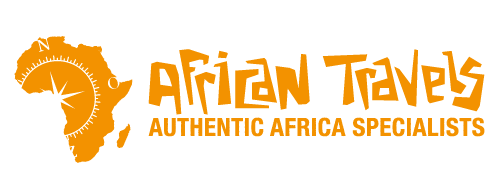When a child wants to volunteer in Africa
Your kid has just announced that he/she is contemplating to go on a volunteering trip abroad next summer. Before you shoot the idea down, take a moment to think about the possible benefits. Volunteering abroad can be a life-changing experience. Your child will become more open-minded and independent, and will gain a better understanding of the world. But, parents wouldn’t be parents if they weren’t there to protect their child against a possible bad experiences. With that in mind we’ve formulated this short list with practical advice for parents.
1. Listen before you advise
The prospect of your child volunteering in Africa may have taken you by surprise. If you’re leery about the idea, give your child a chance to make their case. Discussing with your child why she wants to volunteer abroad will help clarify their expectations and motivations. It’s also an opportunity to see how realistic she is being about the experience
2. Do your homework
Whether or not you’re completely on board with the idea of your child volunteering abroad, it’s important to do your own research. Programs vary greatly in price, focus, location, size, length of time, and opportunities. You’ll want to compare programs, and research different types of volunteer opportunities to find one that fits your child.
Besides practical and logistic services like airport pick-ups, transportation to and from the projects and accommodation Khaya provides on-call support throughout the duration of your child’s stay. Participating in a volunteer program will also provide instant friends for your child and the homey environment of our volunteer house will be a safe haven for her to stay.
One common question volunteers ask is why they have to pay to volunteer. The primary reason is that the companies that run these programs need financial support to maintain the programs. Figure out exactly where the program fees are going before you decide on a program. A final important step of planning is to familiarize yourself with the current political climate, historical events, and geography of the region. Follow the news and buy a travel guide about the country.
3. Prepare a planning checklist
To ensure nothing is forgotten, sit down with your child and make a pre-trip checklist. Don’t forget these important items.
Visit the travel clinic: Your child will need to complete all the necessary shots before departure. Also, check for any special medications, like malaria pills, that she may need. Please remember that Ebola is NOT a huge risk when going to Tanzania, Malawi or South Africa and that there is an unnrealistic view about this decease created by the media. Realistically you have a bigger chance of dying when crossing the road then of Ebola. No cases of this decease have been recorded in the countries we send volunteers to and the risks of beig infected are bigger in Europe then in most of Africa.
Make sure you understand the safety conditions of the region: Visit the travel safety site of your government for current information on travel precautions throughout the world, including weather updates and details of ongoing conflicts. This site is also a good resource for information on passports, visas and legal issues abroad.
Obtain a visa, if necessary: Some countries require you to obtain a visa in your home country if you are going to stay for an extended period of time. Contact their embassy to find out the requirements.
Purchase health and travel insurance: Some health insurance companies do cover dependents while overseas. Travel insurance covers flight changes, theft, and other personal losses.
Alert your child’s bank: Because banks freeze accounts after unusual activity, you’ll want to contact the bank to make sure they know your child will be using their card in another country.
Photocopy all important documents: Your child will want to have copies of their passport, visa, drivers license and credit cards to ensure that if anything is stolen it will be easier to replace. Scan the photocopies and mail them to yourself and your child for access anytime anywhere.
Start packing: Research the climate of the region as well as the change in seasons. If this experience is part of a larger trip, be sure to consider the upcoming destinations as you pack. If your child is on special medications, make sure to obtain enough of the prescription to last the entire trip.
4. Schedule regular Skype dates
Thanks to modern technology, it’s never been easier to be so far away yet so close to home. Schedule weekly Skype dates to keep up on your child’s activities. It’s far more fun to gush about an experience on the phone and seeing their face will prove she really is just fine.
5. Plan a visit
Maybe you never thought about visiting Africa. But now that your child is a couple of months there, it seems like a pretty great excuse for a family vacation. Plus, it gives your teen a chance to share this life-changing experience with you! Or plan a trip after the program is over to explore the region she is volunteering in as a family.
6. Be supportive through homesickness
Volunteering abroad isn’t like vacationing. The situations can be drastically different from what your child is used to at home and it will take some time to transition. You have to trust that your child will be ok and give them time to adjust.
To conclude things
Volunteering abroad can be a life-changing experience. Your child will become more open-minded and independent.
The most important thing to remember throughout this experience is to be a proud parent. Your child has grown up to be someone who wants to help others and make a difference in this world. It wouldn’t be without you that they grew up to be this wonderful person. Be proud of that and brag to everyone about the amazing things your child is doing for the less fortunate.
